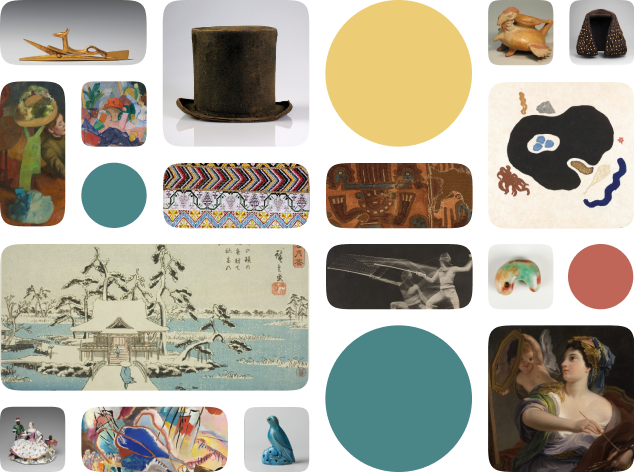Plaque - Hariti and Child
Creator Name
Cultural Context
Date
Source
About the work
This plaque of the goddess Hariti is from around 1800 in Mathura, in what is now northern India. Mathura is a significant holy site for devotees of the Hindu god Krishna. It was also a major center of Buddhist art in India in the first millennium CE. In this terracotta plaque, perhaps from a temple, we can recognize Hariti from the child in her hands. Her dress is much more simple and modern than in other representations. She lifts her foot to pull a thorn from it, a common pose of yakshinis (nature spirits) and apsaras (heavenly feminine spirits) in Indian art. This pose continued to be a popular position for youthful beauties, both human and divine, in 18th and 19th century Indian art, for example in this Rajasthani miniature and Raja Ravi Varma’s famous painting of Shakuntala.
Work details
"--" = no data available
Title
Creator
Worktype
Cultural Context
Material
Dimensions
Technique
--
Language
--
Date
Provenance
Style Period
--
Rights
Inscription
--
Location
Source
Subjects
Topic
Curationist Metadata Contributors
All Works in Curationist’s archives can be reproduced and used freely. How to attribute this Work:
Unknown, Plaque - Hariti and Child, circa 1800. Brooklyn Museum. In this small terracotta plaque of the goddess, Hariti, she holds a child in her left arm and lifts her foot to pull a thorn from it, a pose common in 18th and 19th century Indian art. Creative Commons Attribution.
Help us improve this content!
Let our archivists know if you have something to add.
Save this work.
Start an account to add this work to your personal curated collection.
